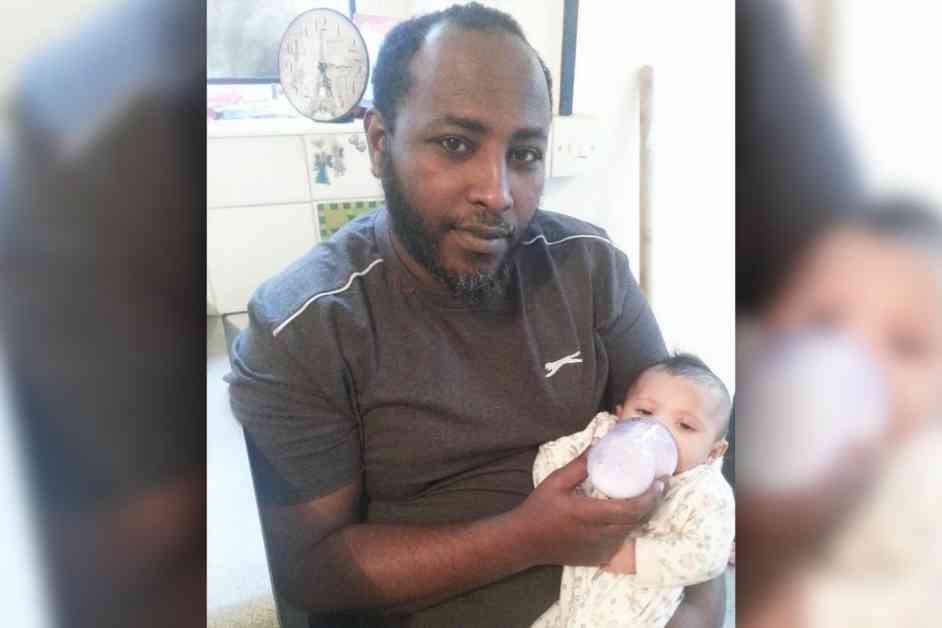**Forgotten Prisoners Speak Out Against Early Release Scheme**
As the government’s controversial decision to release thousands of prisoners early continues to spark debate and outrage, those serving under abolished imprisonment for public protection (IPP) sentences are raising their voices against being left out of the release scheme.
**The Plight of IPP Prisoners**
The release scheme, known as SDS40, has already allowed over 5,500 prisoners to walk free by serving just 40% of their sentence, citing overcrowding as a reason for early release. However, almost 3,000 individuals serving IPP sentences are not eligible for this program, despite many of them having served well beyond their minimum tariff. This has left many IPP prisoners feeling forgotten and abandoned.
One such prisoner is Abdullahi Suleman, a father of three who has been incarcerated for nearly 20 years for a laptop robbery. His wife, Bernadette Emerson, shared the devastation her husband feels at being excluded from the early release scheme. She expressed frustration at the lack of consideration for IPP prisoners, whose tariffs ended years ago, yet remain behind bars.
**The Impact on Families**
Emerson revealed the toll this exclusion is taking on IPP prisoners and their families, noting that many inmates are struggling with mental health issues due to the uncertainty and hopelessness of their situation. She emphasized the psychological impact of seeing other prisoners being released early while IPPs continue to serve indefinite sentences, calling it a cruel form of psychological torture.
The ongoing imprisonment of IPP inmates has been labeled as a grave injustice by human rights experts, with concerns raised about the toll it takes on mental health. The exclusion of IPP prisoners from the early release scheme has been described as a double blow, compounding the already dire circumstances faced by these individuals.
**Calls for Justice and Reform**
Campaigners and advocacy groups, such as the United Group for Reform of IPP (UNGRIPP), are calling for all IPP prisoners to have their sentences reviewed and for a reconsideration of the early release scheme to include those serving under IPP sentences. The lack of action on behalf of the government to address the injustice faced by IPP prisoners has been deemed a missed opportunity by experts and advocates in the field.
Richard Garside, director at the Centre for Crime and Justice Studies, has voiced support for a private members bill that seeks to address the issue of IPP sentences and ensure that all prisoners are treated fairly and justly. The government’s failure to address the plight of IPP prisoners amidst a prison overcrowding crisis has been criticized as shortsighted and unjust.
**The Human Cost of Inaction**
The human cost of inaction on the part of the government is evident in the stories of individuals like Thomas White and Yusuf Ali, who have faced unimaginable hardships while serving under IPP sentences. White, who set himself on fire after serving over 12 years for stealing a mobile phone, and Ali, who has resorted to hunger strikes in desperation, are just a few examples of the tragic outcomes of the IPP sentencing system.
The psychological toll of prolonged incarceration without a clear release date has been likened to torture by human rights experts, highlighting the urgent need for reform and justice for IPP prisoners. The exclusion of these individuals from the early release scheme has only exacerbated their suffering and despair, leading to further mental health crises within the prison system.
**Moving Forward**
As the debate over the early release scheme and the plight of IPP prisoners continues to unfold, it is clear that urgent action is needed to address the injustices faced by those serving under indefinite sentences. Advocates, campaigners, and experts are calling for a reevaluation of the government’s approach to sentencing and release policies, emphasizing the need for fairness, transparency, and compassion in the criminal justice system.
The stories of individuals like Abdullahi Suleman, Thomas White, and Yusuf Ali serve as powerful reminders of the human cost of policy decisions and the importance of upholding justice and dignity for all individuals, regardless of their circumstances. It is crucial that the voices of forgotten prisoners are heard and that concrete steps are taken to ensure that no one is left behind in the pursuit of justice and rehabilitation within the prison system.












